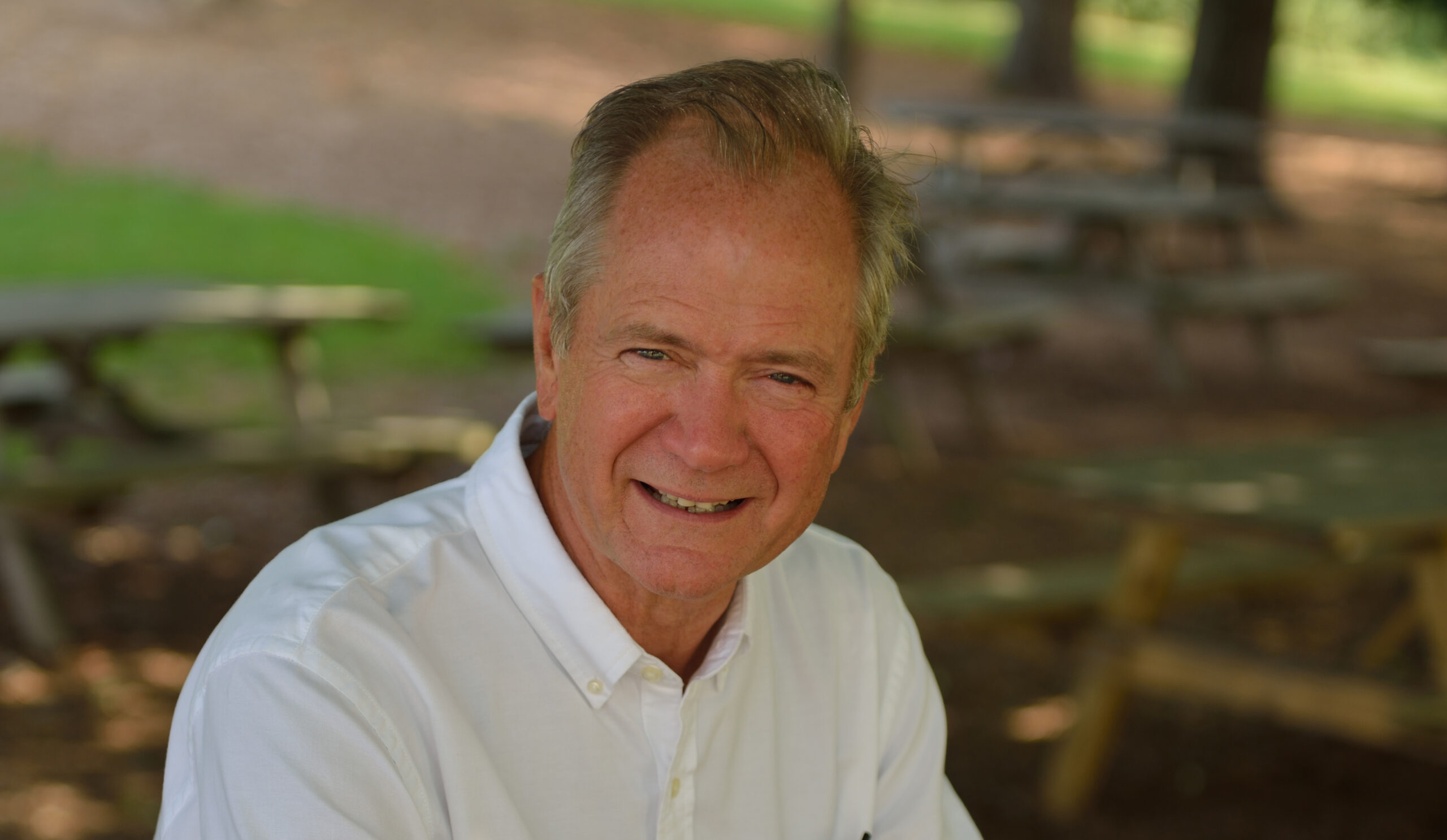Spring time is the season of hope at Boordy Vineyards. Emerald shoots appear on the grapevines across rolling hills. In May, perfume from tiny flowers fills the air.
“Everything looks under control,” says Rob Deford ’93, geography, owner of Maryland’s oldest winery. “You suffer from irrational hope.”
Deford calls spring his favorite season, a time of promise. In the spring, he says he looks around and thinks, “I’m in the right business.” A month later, weeds appear, vines grow a foot at a time, and anxiety grows until harvest time.
He laughs about the process of growing grapes and turning them into wine, but he’s serious about it. So serious, in fact, that a few years ago, he ripped out all of his vineyards to plant new ones and tore down the winery to build a new state-of-the-art facility. The goal was the best wine Boordy could produce.
Early Beginnings
Deford grew up on the farm in Long Green Valley where Boordy is headquartered. Once the home of chickens, pigs, and cows, its fields are now covered in grapevines. His family began growing grapes in the 1960s to produce fruit for the Boordy winery, then owned by Philip Wagner. Wagner began Boordy in 1945; the Defords took it over in 1980.
Deford came to UMBC in a roundabout way, via Stanford University, a motorcycle trip to South America where he took more college classes, and then to wine school at the University of California, Davis. Already running Boordy, he decided he needed to go to business school — but he was still a few credits short of his bachelor’s degree.
“It was the best thing for a winemaker.” — Boordy Vineyards owner Rob Deford ’93, on studying geography at UMBC
“I kind of stumbled on UMBC,” Deford says. UMBC offered him a way to finish the degree started nearly two decades before. He intended to study economics until he sat in on a geography class with Andy Miller and later another with Sandy Parker.
“I fell in love with the geography department,” Deford says. He immediately switched majors and has been glad ever since. Everything to do with wine, he explains, is related to geography: the land, the soil, the weather, mapping. Wine-lovers discussing the “terroir” of a wine are considering all the factors that give a wine its flavor profile: soil type, topography, weather. In other words, geography.
“It was the best thing for a winemaker,” he says.
Lay of the Land
Not only was he prepared for his MBA studies at Loyola University Maryland, he had a whole new tool kit to use at the winery. He’s no geography expert, he adds. “What little I do know has dovetailed with the wine industry.”
Deford puts those concepts to work every day in the vineyards — sustainability, climate change, balance. “The better our balance with nature, the better our wines will be,” he says.
Boordy remains a family business. Deford and his wife Julie are co-owners with Deford’s sister Sally Deford Buck, and her husband R. Bayly Buck, and Deford’s son Phineas have joined the business. Although Boordy is 73 years old, in the world of winemaking, it’s still comparatively young.
“We are in our infancy,” Deford says. But the business is definitely growing up. In addition to fruity wines and drier wines known as the Chesapeake Landmark series, Boordy now offers the award-winning, estate grown Landmark Series. To produce the new wines, Deford did something breathtaking. In 2006, he began replanting all the vines at both the Long Green farm and the 50 acres Boordy leases in Burkittsville, on South Mountain. He then rebuilt the winery in 2013.
Winemaking is a competitive business but a collaborative one, too, says Deford, who has worked with other Maryland wineries to improve the value and quality of their products. The winemaking business has mushroomed in Maryland with some 70 wineries and nearly 1,000 acres planted in grapes, according to the Maryland Wineries Association, an organization Deford helped establish.
He recalls local wine trade shows of the 1980s when the quality wasn’t always so good, a time when “we were all learning,” Deford says. “Now you go from wine to wine and you say, ‘That’s really good.’”
— Mary K. Tilghman ’79
Tags: Boordy, Spring 2018

